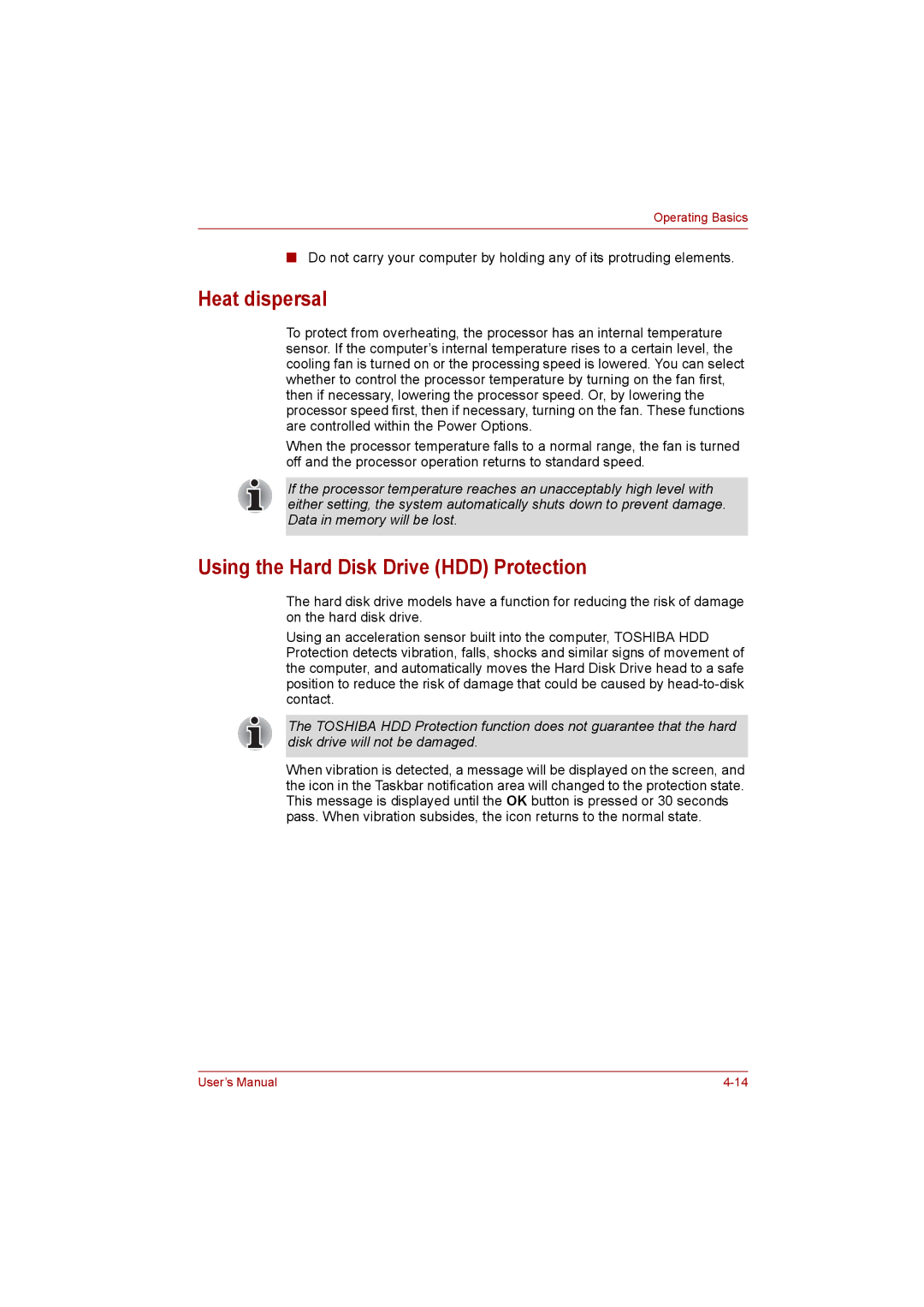
Operating Basics
■Do not carry your computer by holding any of its protruding elements.
Heat dispersal
To protect from overheating, the processor has an internal temperature sensor. If the computer’s internal temperature rises to a certain level, the cooling fan is turned on or the processing speed is lowered. You can select whether to control the processor temperature by turning on the fan first, then if necessary, lowering the processor speed. Or, by lowering the processor speed first, then if necessary, turning on the fan. These functions are controlled within the Power Options.
When the processor temperature falls to a normal range, the fan is turned off and the processor operation returns to standard speed.
If the processor temperature reaches an unacceptably high level with either setting, the system automatically shuts down to prevent damage. Data in memory will be lost.
Using the Hard Disk Drive (HDD) Protection
The hard disk drive models have a function for reducing the risk of damage on the hard disk drive.
Using an acceleration sensor built into the computer, TOSHIBA HDD Protection detects vibration, falls, shocks and similar signs of movement of the computer, and automatically moves the Hard Disk Drive head to a safe position to reduce the risk of damage that could be caused by
The TOSHIBA HDD Protection function does not guarantee that the hard disk drive will not be damaged.
When vibration is detected, a message will be displayed on the screen, and the icon in the Taskbar notification area will changed to the protection state. This message is displayed until the OK button is pressed or 30 seconds pass. When vibration subsides, the icon returns to the normal state.
User’s Manual |
